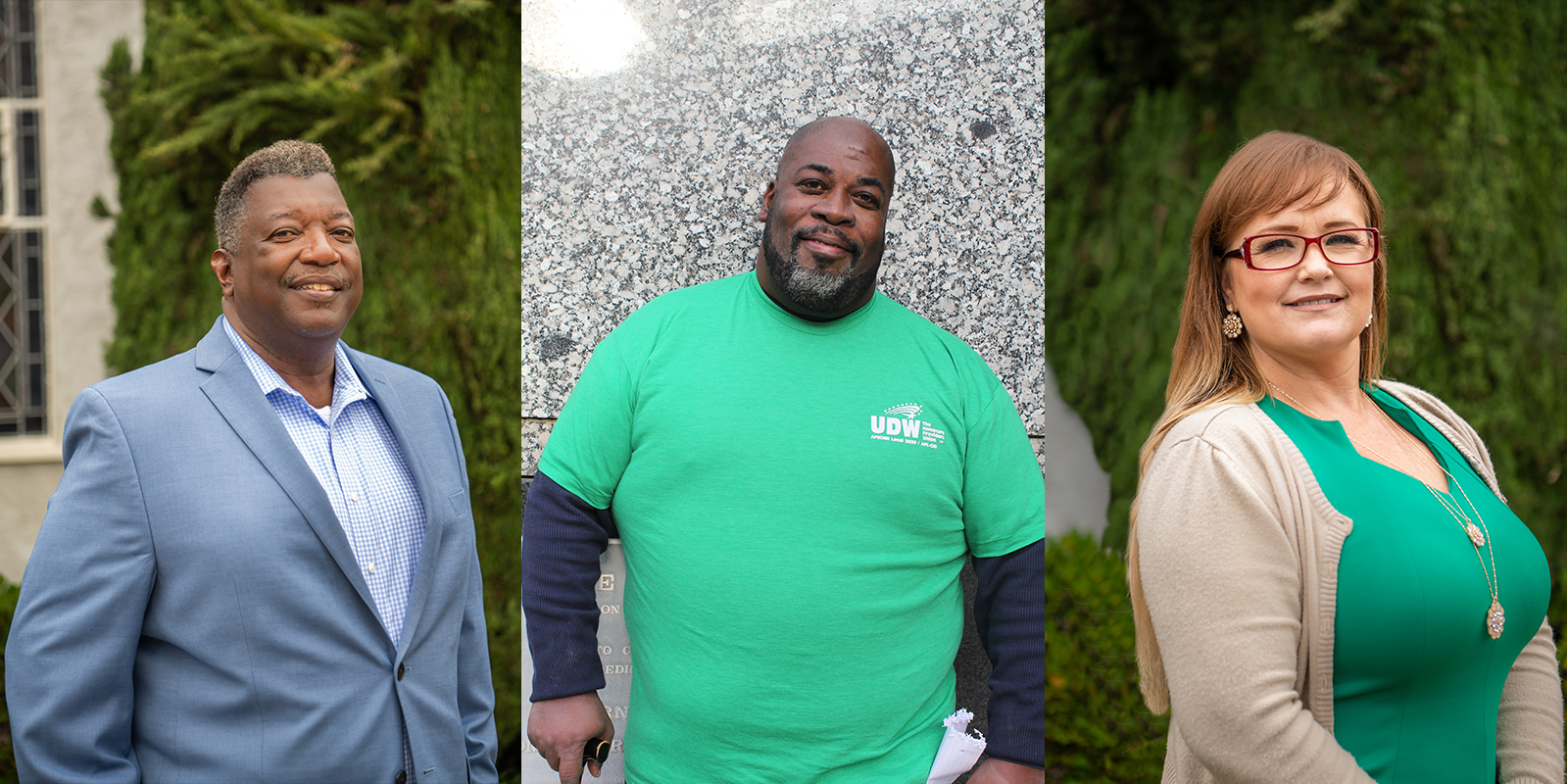LOS ANGELES – As COVID-19 rages across the United States, health care and public service workers are on the front lines, fighting to keep their communities safe. But in California, one group of workers hasn’t received nearly the attention, let alone the resources, that they need to protect themselves or their patients during this crisis.
In-home Supportive Services (IHSS) providers, or home care workers, are responsible for caring for people who are among the most susceptible to contracting the coronavirus: the elderly, the disabled, and those with compromised immune systems. Their daily tasks can range from housework to bathing to paramedical services, making the need for personal protective equipment (PPE) and professional support even more urgent.
“We’re in the most intimate situations. There is no social distancing in our jobs. None,” said Astrid Zuniga, an IHSS provider for her adult son with autism and an executive vice president of United Domestic Workers of America (UDW/AFSCME 3930), which represents 120,000 workers in 21 counties across California. “We are having to bathe [patients], we are having to transfer [them] from bed to bedpan, from bed to shower, helping [them] to dress, there is no 3-6 feet at all. Home care providers are the ones that are having to be on the front lines 100%.”
Yet so far, most home care workers have not received masks or gloves, or received infectious-disease trainings or briefings from their county employers.
“I know that we need to take precautions, and he gets sickly and we don’t know what it is,” said Wymon Johnson, a UDW member from Bakersfield who cares for his disabled nephew. “His immune system is compromised – so is he putting me in danger, or am I putting him in danger?”
The State of California administers the IHSS program, sending state and federal funds to individual counties, which then negotiate hourly wages and benefits with UDW. Many IHSS providers do not have access to health care, and most are paid just above the minimum wage. Demographically, the majority of providers are women and people of color, with a large immigrant community for whom English is not their first language.
With all those factors, combined with the lack of PPE, providers not having more than eight hours of paid sick leave, and the absence of a statewide backup plan in case the providers get sick and can’t take care of their 600,000 clients, the IHSS program has the potential to see many coronavirus infections.
That’s why UDW is lobbying the State of California to guarantee income protection for IHSS providers who are unable to work as a result of COVID-19 and to ensure IHSS clients get the services they need to stay healthy in their homes.
“Home care was already a hard job before the outbreak: low pay, irregular hours, personal and paramedical care provided in the most of intimate settings. The workers who provide this care are true heroes who make our families and communities stronger,” said Doug Moore, executive director of UDW. “But California needs to understand that these are front-line health care workers who care for the seniors and people with disabilities who are at most risk from this virus. We must protect IHSS providers and clients, or else lives will be lost.”
